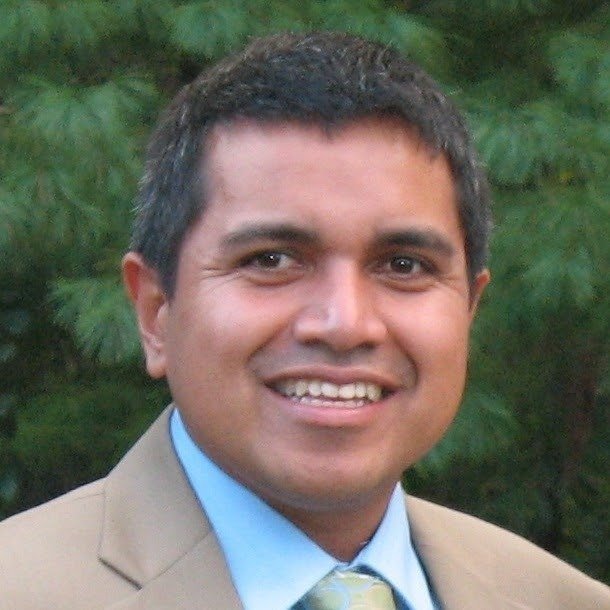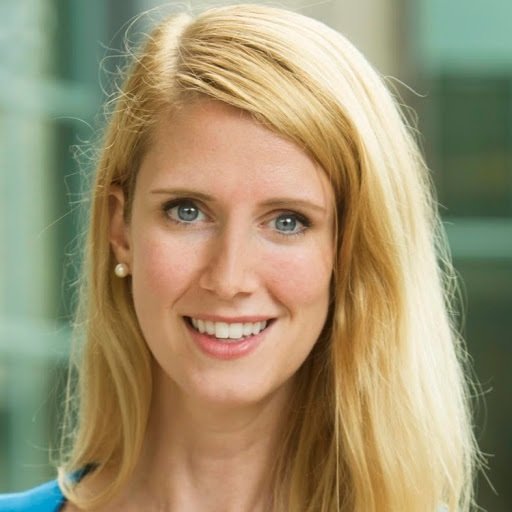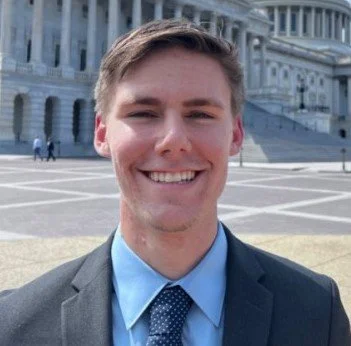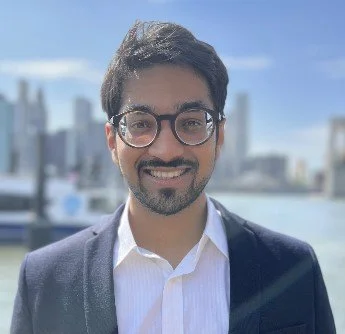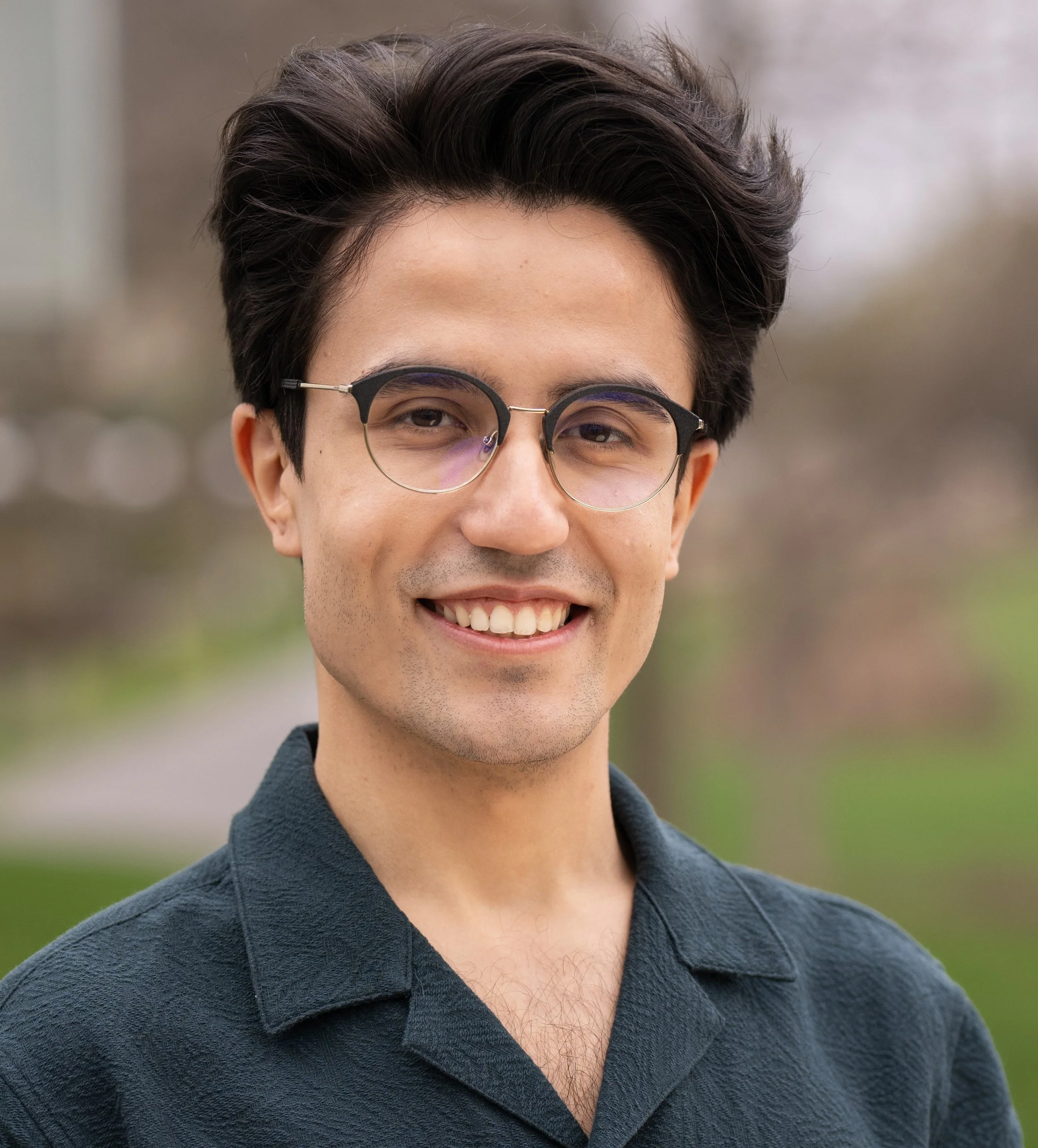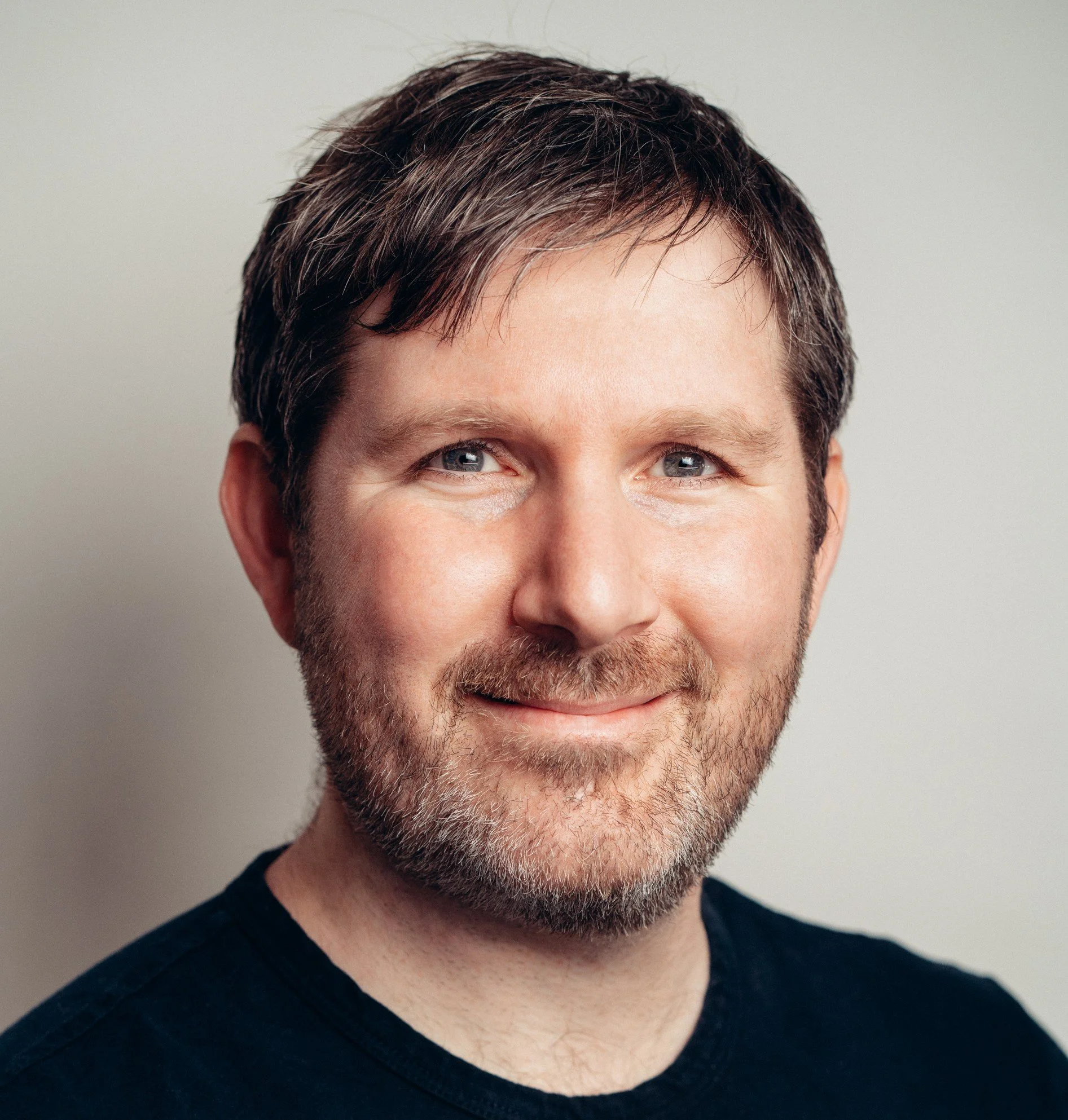2025 Conference
NEW DIRECTIONS 2025
The University of Virginia’s Darden School of Business was excited to host the 9th Annual Psychology of Technology Institute’s “New Directions in Research on the Psychology of Technology” conference, which was held on November 14–15, 2025. The conference theme this year was “Promoting Human Flourishing Through Purpose-Driven AI.” The event brought together a unique mix of industry leaders, behavioral scientists, technologists, and members of the AI community who explore how AI can be designed and deployed to support long-term psychological, societal, and ecological well-being.
The conference venue was in the Rosslyn district of Arlington, Virginia, at the University of Virginia’s Darden DC Metro, 1100 Wilson Boulevard, Arlington, Virginia 22209.
CONFERENCE ORGANIZERS
Ravi Iyer, USC Marshall School of Business
Nathanael Fast, USC Marshall School of Business
Juliana Schroeder, UC Berkeley, Haas School of Business
Schedule
Please note that all the times indicated in the schedule are provided in Eastern Time.
SATURDAY, NOVEMBER 15, 2025
08:30am – 09:15am: Coffee, Light Refreshments, Networking
09:30am – 10:45am: Session 5
Min Kyung Lee, “Participatory approaches to AI design and governance” [watch video]
Andreas Katsanevas, “Building an Industry-Wide Forum on AI Agents: Insights and a Path Forward”
Ravi Iyer, “Research Informed Tech Policy” [watch video]
10:45am – 11:05am: Coffee Break
11:05am – 12:20pm: Session 6
Jon Bogard, “Are LLMs Good Psychology Researchers (yet)?” [watch video]
Dan Shank, “Machine Penalty: The Consequences of Seeing Artificial Intelligence as Less Than Human” [watch video]
Meetali Jain, “Risks of AI Chatbots”
12:20pm – 01:30pm: Lunch
01:30pm – 02:15pm: Session 7: DataBlitz
Benjamin Lira, “Coach not crutch: AI assistance can enhance rather than hinder skill development” [watch video]
Laura Globig, “Using Artificial Intelligence to Circumvent Intergroup Bias as a Barrier to Learning” [watch video]
Cheryl Einhorn, “The Human Edge in AI-Powered Decisions” [watch video]
Roberto Bello, “Purpose-Driven AI in the Classroom: Lessons from AI-Assisted Grading”
Shuhua Sun, “How and For Whom Using Large Language Models Affects Creativity: A Field Experiment”
02:15pm – 02:30pm: Coffee Break
02:30pm – 03:15pm: Session 8: Group Discussion
03:15pm - 03:45pm: Conference Closing Keynote [watch video]
Angela Duckworth
03:45pm – 04:00pm: Closing Address
Juliana Schroeder
Nate Fast
Roshni Raveendhran
05:00pm – 08:00pm: Social
FRIDAY, NOVEMBER 14, 2025
08:15am – 09:00am: Check-in & Breakfast
09:15am – 09:30am: Welcome Remarks
09:30am – 10:00am: Orienting Talk
Nate Fast, “Purpose-driven AI” [watch video]
10:00am – 11:00am: Session 1
Paul Leonardi, “Digital Exhaustion” [watch video]
Michael Morris, “ACE: A LLM-based Negotiation Coaching System”
11:00am – 11:30am: Coffee Break 1
11:30am – 12:30pm: Session 2
Tom Costello, “The promises and perils of AI persuasion” [watch video]
Rupert Gill, “The emotional impact of AI companions on boys and young men: how much should we worry?” [watch video]
12:35pm – 01:35pm: Lunch
01:35pm – 02:15pm: Session 3: Fireside Chat [watch video]
Eli Parisier
Moderator: Juliana Schroeder
2:15pm - 3:10pm: Session 4: DataBlitz
Swapneel Mehta, “GenAI Health Literacy Interventions for Expectant Mothers in India” [watch video]
Dan-Mircea Mirea, “Cognitive predictors of preferences for social support from AI vs. humans” [watch video]
Sam Hiner, “The Human-like AI Policy Framework” [watch video]
Michael Geers, “Teens, Screens, and Well-Being: A Prospective Study”
Steve Rathje, “The consequences of AI sycophancy” [watch video]
Yuning Liu, “Awareness of Social Media Use Motivation Improves User Experience and Well-being Outcome” [watch video]
03:10pm – 03:30pm: Coffee Break 2
03:30pm – 04:00pm:
Pat Pataranutaporn, “Cyborg Psychology: Inventing, Investigating, and Inspiring Human-AI Systems for Human Flourishing” [watch video]
04:00pm – 05:00pm: Group Discussion
05:00pm – 05:30pm: Closing Keynote [watch video]
Jay Van Bavel
05:30pm – 06:30pm: Happy Hour & Poster Session
*Poster Session Presenters
Sara Kay, “AI as a Resilience-Builder: Restoring Meaning After Job Loss Through Purpose-Driven Technology”
Mengying Cao, “Toward Ethical and Human-Centered AI: A Systematic Review of HRD Strategies for Navigating the Changing Nature of Work”
Bethany Hsiao, “Perceptions of Fairness in Algorithmic Decision-Making”
Jenny Fu, “Writing the Self with AI:
How Generative Systems Reshape
Self-Perception and Agency”Ertugrul Uysal, “How Generative
AI Can Empower Rather Than
Marginalize Employees”Ravi Iyer, “Neely Center Social AI Design Code”
Jacy Reese Anthis, “HumanAgencyBench:
Scalable Evaluation of Human Agency
Support in AI Assistants”
06:30pm – 08:30pm: Dinner
PArtial list of speakers

Jacy Reese Anthis is a computational social scientist researching human-AI interaction and machine learning. His research focuses on how humans can coexist with “digital minds,” general-purpose AI agents and companions. His research has been published in top academic venues, such as CHI, ACL, and NeurIPS, and featured in global media outlets, such as Vox, The Atlantic, and The Guardian. Anthis was recognized as a 2025 Rising Star in Data Science. He is a visiting scholar at the Institute for Human-Centered AI at Stanford University, a co-founder of the nonprofit Sentience Institute, and a PhD candidate at the University of Chicago.
Roberto Bello is a marketing professor and behavioral scientist dedicated to advancing purpose‑driven AI that nurtures trust, equity, and long‑term well‑being. After leading analytics and product‑strategy teams in the consumer‑tech sector, he transitioned to academia, first serving as an Assistant Professor of Marketing at Washington State University’s Carson College of Business. He now holds a Senior Lecturer position at the University of Georgia’s Terry College of Business, where he designs AI‑enhanced teaching tools and marketing simulations that foster learner flourishing and responsible decision‑making. Roberto’s scholarship, grounded in the Technology Acceptance Model and consumer–brand relationship theory, has appeared in the Journal of Marketing Education and other peer‑reviewed outlets, and has advised organizations on ethically grounded AI strategy. Roberto earned a MSc in Marketing, and a BS in Marketing Management.
Jon Bogard, professor of Organizational Behavior at WashU in St. Louis, studies judgment and decision making. Most of Jon’s research considers how people respond to uncertainty. His work studies how people construe uncertainty (e.g., risky choice, belief updating, and forecasting), how they make sense of uncertain situations (e.g., behavioral interventions, social inferences), and how they figure out what is right (e.g., behavioral ethics) and what is common (e.g., norms, social proof). Jon has a special interest in AI safety and alignment. Prior to earning his doctorate in Behavioral Decision Making from UCLA, Jon ran a training program for teachers and school leaders in New Orleans. Jon earned his BA in philosophy from Brown University.
Mengying Cao is a Ph.D. student in Human and Organizational Learning at The George Washington University. Her research explores the intersection of artificial intelligence, the changing nature of work, and human resource development, with particular interests in cross-cultural organizational learning, AI-driven workforce development, and lifelong learning in the digital age. She holds a Bachelor's degree in Economics and an MBA. Prior to her doctoral studies, Mengying worked in management consulting and participated in international research projects with UNESCO and Chinese universities on educational technology and digital transformation.
Thomas Costello is an Assistant Professor in Social and Decision Sciences at Carnegie Mellon University. He also holds appointments as Affiliated Faculty at the Human-Computer Interaction Institute at Carnegie Mellon University and is a Research Affiliate at MIT’s Sloan School of Management. His research integrates psychology, political science, and human-computer interaction to examine where our viewpoints come from, how they differ from person to person, and why they change. He also studies the sweeping impacts of artificial intelligence on individuals. Dr. Costello's work has been supported by federal agencies, philanthropic foundations, and corporate sponsors, and has been published in top peer-reviewed outlets, including Science, Nature, Nature Medicine, Journal of Personality and Social Psychology, Psychological Bulletin, and Trends in Cognitive Sciences. He has been featured in outlets such as The New York Times, BBC World News, and NPR. Thomas developed DebunkBot.com, a public tool for combating conspiracy theories with AI. He has been awarded the Rising Star award from the Association for Psychological Science, the Klarman Fellowship from Cornell University, the Heritage Dissertation Research Award from the Society for Personality and Social Psychology, and the JS Tanaka Dissertation Award from the Association for Research in Personality. In tee ball he hit a stand-up triple – and it has all been downhill from there.
Angela Duckworth is the Rosa Lee and Egbert Chang Professor at the University of Pennsylvania, faculty co-director of the Penn-Wharton Behavior Change for Good Initiative, and faculty co-director of Wharton People Analytics. A 2013 Mac Arthur Fellow, Angela has advised the US Department of Education, the World Bank, NBA and NFL teams, and Fortune 500 CEOs. Angela completed her undergraduate degree in Advanced Studies Neurobiology at Harvard, her MSc with Distinction in Neuroscience at Oxford University, and her PHD in Psychology at the University of Pennsylvania. Angela’s TED talk is among the most viewed of all time. Her book Grit: The Power of Passion and Perseverance is a #1 New York Times best seller.
Nate Fast is an associate professor of management and organization at the University of Southern California and cofounder and co-director of the Psychology of Technology Institute. He also directs the Neely Center for Ethical Leadership and Decision Making at USC. His research examines the psychological determinants and consequences of AI adoption, with implications for power dynamics, leadership effectiveness, and the future of work. His research is cited in both academic and popular outlets, and he serves as a regular advisor to companies and leaders on their approaches to developing and deploying AI.
Jenny Fu is a final-year PhD candidate in Information Science at Cornell University. Her work examines how generative technologies influence self-perception, agency, and identity in professional and creative writing. With training in cognitive science and design research, she combines experimental and qualitative methods to understand how human–AI interactions affect narrative and expression.
Michael Geers is a behavioral scientist and an assistant professor of Marketing at the Michael Smurfit Graduate Business School, University College Dublin (UCD). His research explores human behavior in digital contexts. In his first stream of research, he investigates how people process (mis)information and make decisions online. In a second stream, he aims to boost people’s competences to navigate digital environments and guard themselves against manipulation. Michael's research has appeared in journals such as Journal of Experimental Psychology: General, Current Opinion in Psychology, Judgment and Decision Making, and Nature Human Behaviour.

Rupert Gill is a behavioural scientist with a PhD from Cambridge, where he studied decision-making, and identity. He has held senior roles in the UK government, including at 10 Downing Street, and at the UK’s social media regulator. His current work focuses on online safety and the psychological impact of AI companions, combining professional expertise with the personal perspective of a parent whose children are now entering the world of social media and AI.
Laura Globig is a cognitive neuroscientist and postdoctoral researcher at New York University, funded by grants from Google, the Dana Foundation and the Roddenberry Foundation. She received her PhD from University College London and was a visiting scholar at the Massachusetts Institute of Technology. Combining behavioral experiments, computational modeling, and neuroimaging, her research investigates how internal and external reward structures shape information-processing, belief-formation and decision-making. Her work bridges basic science and applied contexts, with a particular focus on uncovering the mechanisms through which AI systems and online platforms alter human behavior, and how these systems might be redesigned to promote more adaptive and constructive outcomes.
Sam Hiner is the Co-Founder and the Executive Director of the Young People’s Alliance. In this role, Sam leads a youth movement that spans over 60 campuses to save the American Dream by developing bipartisan policy to address the crises of youth opportunity, affordability, and communities. Sam also leads policy initiatives on human-like AI, including introducing AI legislation in North Carolina, filing an FTC complaint against a prominent AI companion company, and leading a 25-organization Human-like AI coalition to create policy that protects communities and autonomy in the age of AI. Sam is a recent graduate of UNC-Chapel Hill, where he studied Sociology and Economics.
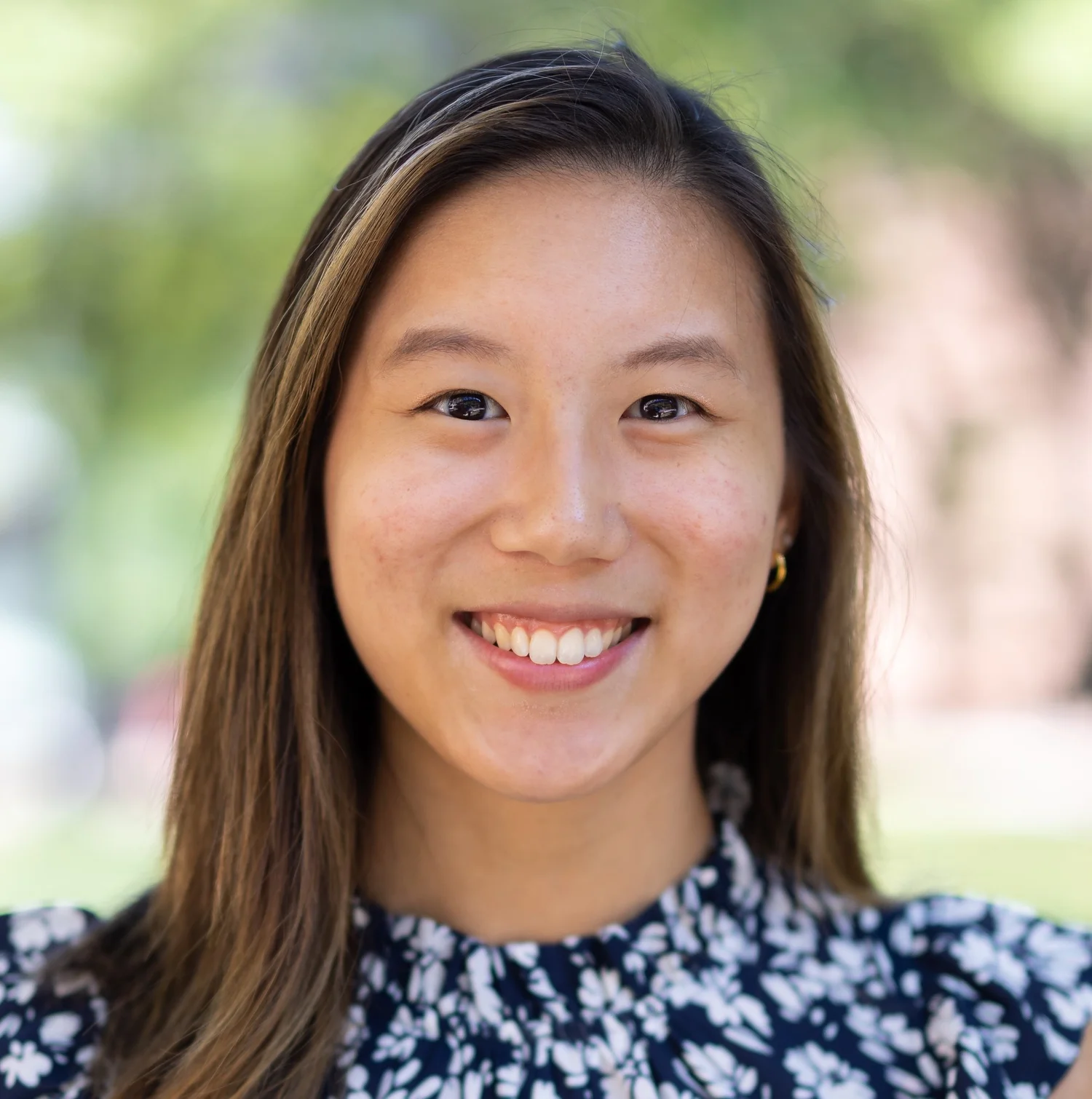
Bethany Hsiao is a third-year PhD student at the University of Pennsylvania in the Wharton Operations, Information, & Decisions department. She is part of the Computational Social Science Lab and advised by Professor Duncan Watts. Her research focuses on AI and its impact on human decision-making.

Meetali Jain serves as TJLP’s founding executive director. Over the course of her career, Meetali has worked as a lawyer, policy advocate, campaigner and educator. She started her career by representing detainees post-9/11 accused of terrorism, including at Guantanamo Bay, and by organizing in South Asian and Muslim communities impacted by surveillance and racial profiling. She’s also litigated cases involving human rights, immigrant justice, and challenging corporate power. Meetali worked at the Morrison & Foerster and Goldstein Demchak law firms, taught human rights and constitutional law in law clinics at American University, Seton Hall, and in law schools across South Africa. In 2017, while working as Campaign and Legal Director at Avaaz, Meetali began working on issues of disinformation and broader tech harms globally. In 2021, she joined Reset Tech where she focused primarily on issues of tech law and policy in the US. Meetali clerked for the Honorable Virginia Phillips in the U.S. Central District of California and for Justice Yvonne Mokgoro in the Constitutional Court of South Africa. She serves on the Boards of the Integrity Institute, Type Media Center, and is an advisor to the California Initiative for Technology and Democracy (CITED), and Design It For Us (DIFU) and ReThink Citizens Youth Squad Advisory Coalition, both youth-led movements to build better tech spaces for young people.
Andreas Katsanevas leads Governance Innovation at Meta where he develops deliberative AI governance frameworks and oversees the company's participation in the world’s first industry-wide forum on AI agents. He previously served as technology policy researcher for Nick Clegg, former President of Global Affairs at Meta. Andreas holds a PhD from Stanford University and was a privacy researcher at the Center for Internet & Society, Stanford Law School.
Sara Kay is a Data Engineer at Moody's Analytics and a Master of Science candidate in Business Analytics at Carnegie Mellon University. With a background spanning data engineering, machine learning, and educational technology, Sara specializes in developing AI systems that enhance human-computer interaction and learning experiences. Her work bridges the technical and psychological aspects of how people interact with AI-powered tools in professional settings. She has co-authored publications in family science methodology and applied finance, with papers featured in the NCFR Report, Applied Finance Letters, and the Journal of Family and Consumer Sciences. Currently based in Boston, Sara is passionate about creating technology that empowers learners and helps people develop confident, responsible relationships with AI tools in both educational and professional contexts.
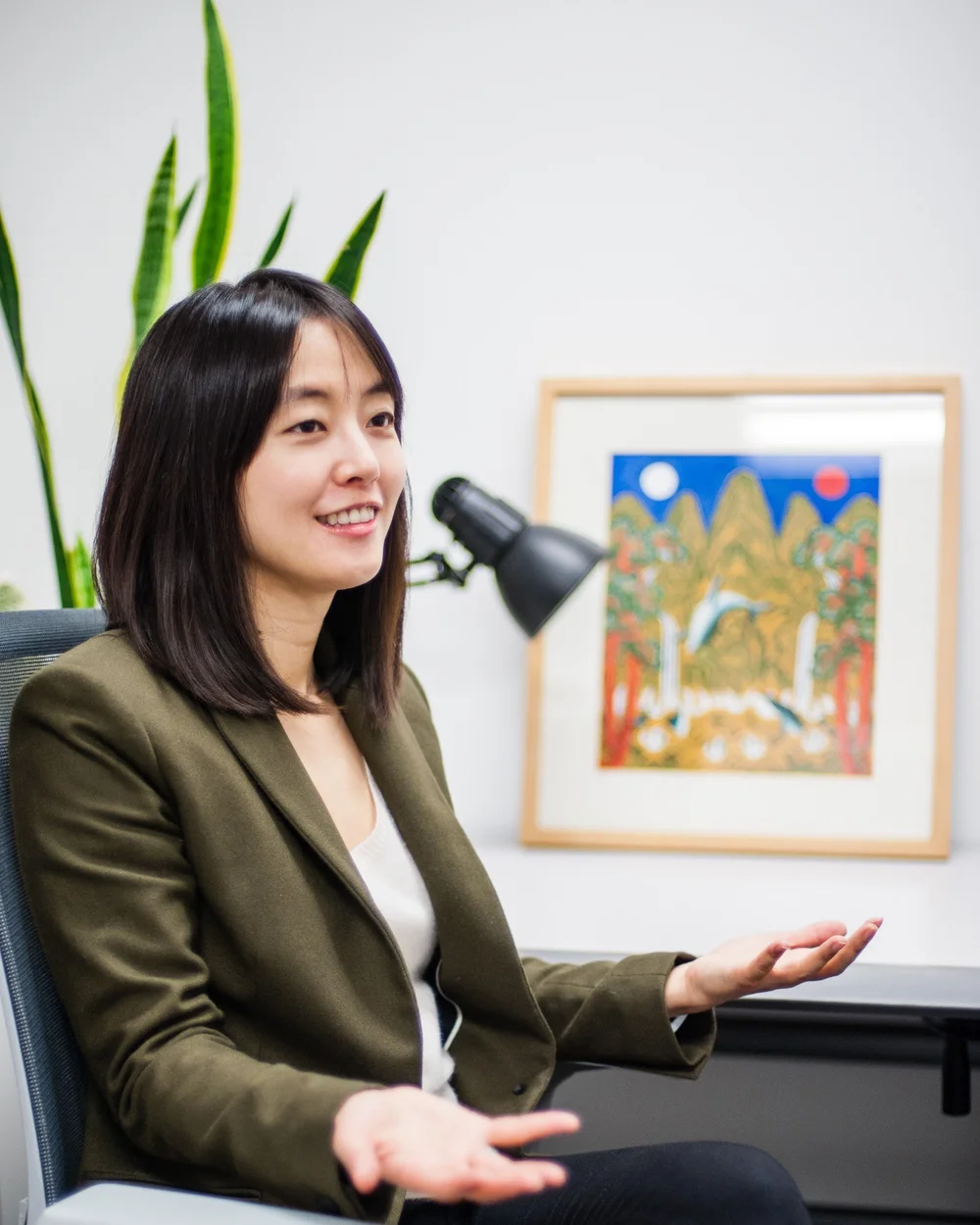
Min Kyung Lee is an assistant professor in the School of Information at the University of Texas at Austin and the director of the Human-AI Interaction lab. Dr. Lee has conducted some of the first studies that empirically examine the social implications of algorithms’ emerging roles in management and governance in society. She has extensive expertise in developing theories, methods, and tools for human-centered AI and deploying them in practice through collaboration with real-world stakeholders and organizations.
Paul Leonardi is the Duca Family Professor of Technology Management at the University of California, Santa Barbara, where he also serves as department chair. His research explores how firms can translate technological change into organizational advantage by improving coordination, enhancing innovation, and developing more adaptive strategies. He has published extensively across the fields of Management, Communication, and Information Systems, and his work is widely cited for its contributions to understanding the social and organizational implications of digital transformation. He is a fellow of both the Academy of Management and the International Communication Association, and has won numerous awards for his research and teaching. His most recent book Digital Exhaustion: Simple Rules for Reclaiming Your Life will be available October, 2025.
Benjamin Lira is a PhD candidate in Psychology at the University of Pennsylvania, working with Angela Duckworth and Lyle Ungar. He studies the effects of artificial intelligence tools on human cognitive capabilities. Specifically, his dissertation shows that, when carefully designed, AI tools can improve learning, motivation, and judgment and decision making.
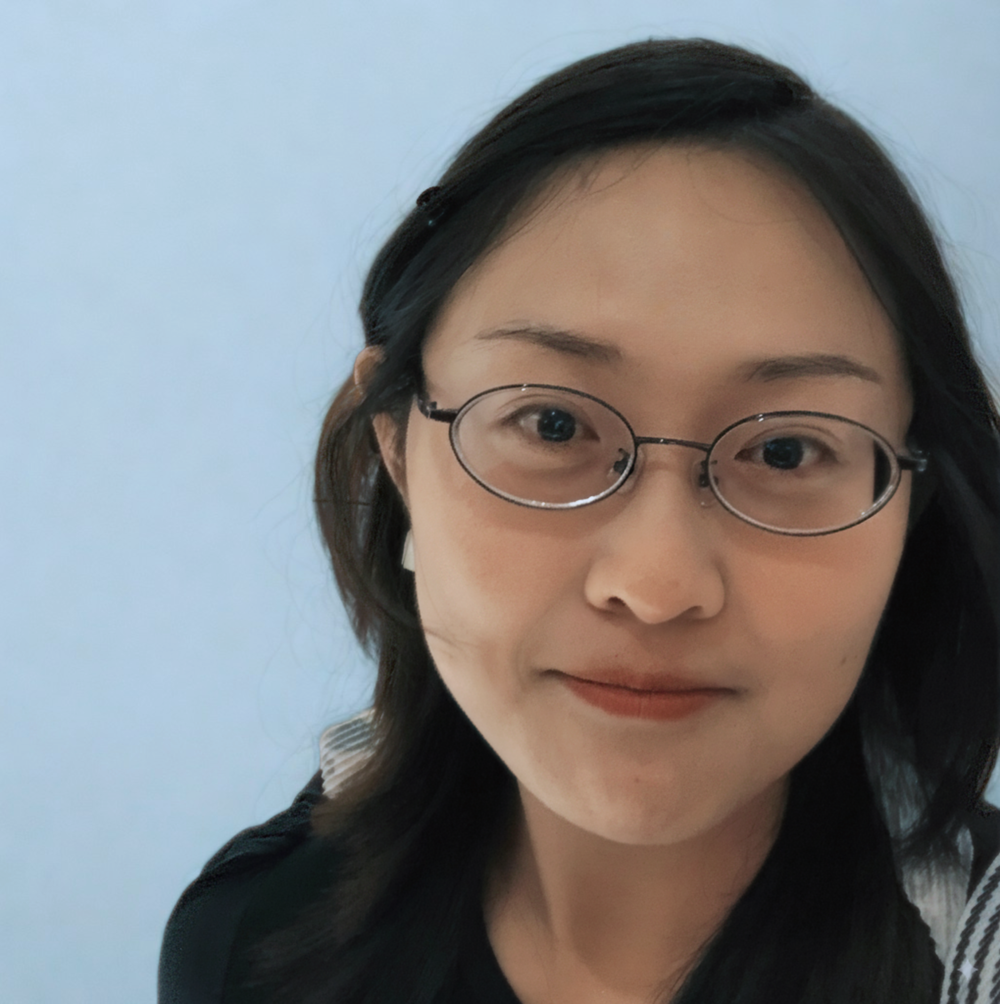
Yuning Liu is a PhD candidate at Harvard University whose research focuses on digital well-being in social media and AI use. Her work examines how users pursue goals and exercise agency in digital environments, with an emphasis on aligning platform design with user intentions. Through both observational and experimental studies, she analyzes longitudinal data on user behaviors, platform features, and online traces. She also collaborates with social media content creators to enhance the quality of online health communication.
Swapneel Sundeep Mehta is a postdoctoral associate at Boston University and MIT, where his research investigates mechanisms to govern AI-mediated information environments through controlled online experiments in two sided markets. He runs a technology research nonprofit rebuilding digital trust, called SimPPL, supported by grants from Ford, Omidyar, Mozilla, Wikimedia, and others. He launched a social venture to advance digital health literacy incubated at MIT and partnered with a leading frontier AI company to advance healthcare evaluations of large language models. He has been a Google Research Innovator and a Belfer Fellow, developing methods to estimate the causal effects of social media interventions on the spread of misleading claims. In the past, he has worked on AI at Twitter, Slack, Adobe, Oxford, Fortune 50 companies, startups, and CERN.
Dan-Mircea Mirea grew up in Romania and moved to the UK after high school to study at the University of Cambridge, where he got his BA and MSci in Natural Sciences. He is now a graduate student at Princeton primarily advised by Professor Yael Niv. Dan uses computational methods to better understand the cognitive and emotional mechanisms behind mental health struggles, with the ultimate goal of improving diagnosis and treatment. He also believes in the importance of scientific communication with the general public, which is why he is also an educational content creator on TikTok. His (other) hobbies include learning languages, singing and color-matching his outfits.
Michael Morris works as a cultural psychologist at Columbia University in its Graduate School of Business and its Psychology Department. Previously he taught for a decade at Stanford University. Morris received his Ph.D. in Psychology from the University of Michigan after undergraduate degrees in Cognitive Science and in English Literature at Brown University. His research has discovered cultural influences on styles of cognition, communication, and collaboration, as well as situational factors that cue them and social experiences that shift them. Outside of academia, Professor Morris advises corporations, government agencies, NGOs, and political campaigns about culture-related issues. He lives in New York City.
Eli Pariser is co-founder and co-director of New_ Public, a community and experimentation hub for digital public spaces. He’s been an author, activist, and entrepreneur focused on how to make technology and media serve democracy. In 2004, at 23, he became Executive Director of MoveOn.org, where he helped pioneer the practice of online citizen engagement. In 2006, he co-founded Avaaz, now the world’s largest citizen’s organization. His bestselling 2011 book The Filter Bubble introduced the term to the lexicon. And Upworthy, the media startup he co-founded in 2012, reached hundreds of millions of visitors with civically important content. Now his work is focused on bringing together community entrepreneurs, researchers, engineers, and designers to envision, architect and scale digital public spaces.

Pat Pataranutaporn, Ph.D. is an assistant professor, technologist, and researcher at the Massachusetts Institute of Technology (MIT), where he is the founding director of the Cyborg Psychology research group. He also serves as co-director of the MIT Media Lab Advancing Humans with AI (AHA) Research Program. His research lies at the intersection of AI and human-computer interaction, where he focuses on inventing, investigating, and inspiring next-generation human-AI systems for human flourishing. As founding director of the Cyborg Psychology research group at the MIT Media Lab, he leads a team of interdisciplinary researchers to develop personalized AI systems informed by human psychology and behavioral science, augmenting human capabilities in decision-making, critical thinking, and learning. His group investigates emerging phenomena through empirical studies examining how AI reshapes cognition, emotion, and behavior, from emotional dependence on AI companions and cognitive manipulation to false memory implantation, placebo effects of human-AI interaction, and the co-evolution of human and machine intelligence. Through collaborations with humanists, artists, and filmmakers, Pataranutaporn and his team create speculative artifacts and experiences that inspire critically optimistic futures, envisioning radically pluralistic cyborg cultures that offer nuanced alternatives to dystopian and utopian extremes while honoring diverse cultural values and ways of knowing. Pataranutaporn’s research contributions have been published in numerous peer-reviewed journals and conferences, such as Nature Machine Intelligence, IEEE, ACM SIGCHI, ACM SIGGRAPH, ACM ISWC, and ACM Augmented Humans. His work has been highlighted by the United Nations AI for Good forum, and has been featuredin MIT Tech Review, the Guardian, New York Times, Washington Post, Forbes, the Atlantic, Scientific American, Wall Street Journal, National Geographic, and more. Pataranutaporn’s work has also been honored as one of TIME’s “Best Inventions of 2023” and was included in Fast Company’s “2023 World Changing Ideas.” Pataranutaporn has been awarded fellowships and grants by multiple research agencies and corporations, including NASA, OpenAI, and KBTG. He has also collaborated with researchers from both academia and industry, including researchers from Stanford Medicine, Harvard, Mass General Brigham, UCSB, UCLA, UC Irvine, Microsoft Research, OpenAI, NTT Data, and more. Pat’s projects have been exhibited at the MIT Museum (Massachusetts), Asia Pacific Triennial (Queensland Art Gallery, Australia), The Art Gallery of Western Australia (Australia) MAXXI – National Museum of 21st Century Art (Italy), Bangkok Art Biennale (Thailand), Bangkok City Gallery (Thailand), National Museum of Singapore (Singapore), Essex Peabody Museum (USA), London Design Festival (UK), Transmediale Festival (Germany), National Taiwan Science Education Center (Taiwan), IDEA Museum (Arizona), Mesa Arts Center (Arizona), Autodesk Gallery (California), SIGGRAPH Asia (Tokyo), Ars Electronica (Virtual) and more. Pataranutaporn co-designed and taught one of the first MIT courses on “Generative AI,” developed to provide students with the essential knowledge and skills required to navigate the frontiers of this emerging field and he co-organized the first workshop on virtual AI humans, attended by over 1600 remotely and over 200 in person in 2021. Pat also serve as the co-creator and writer for the Netflix sci-fi anthology series “Tomorrow and i” premiered in 2024.

Steve Rathje is an incoming assistant professor of human-computer interaction in the School of Computer Science at Carnegie Mellon University and is currently completing a postdoctoral fellowship in Psychology at New York University. His research focuses on how digital technologies, such as social media and AI, shape psychological phenomena such as polarization and well-being. He was included on the 2025 Forbes 30 Under 30 list and was named a Rising Star by the American Psychological Association. Steve has published 38 papers in academic journals such as Science, Nature, and PNAS and has received more than $2.7 million in grant funding for his research.
Dr. Daniel B. Shank is an associate professor of psychological science at Missouri University of Science & Technology specializing in the areas of social psychology and technology. His research primarily focuses on social psychological interactions with and perceptions of artificial intelligence, including morality, emotions, relationships, impressions, and behavior toward AIs. His book, The Machine Penalty: The Consequences of Seeing Artificial Intelligence as Less Than Human, published by Palgrave-Macmillan came out in 2025. He has also published over 50 peer-reviewed articles.

Cheryl Strauss Einhorn teaches decision-making at Columbia University and Cornell University and founded Decisive, for teams solving complex problems. Cheryl is an award-winning investigative journalist and author of three books: Problem Solved, Investing In Financial Research, and Problem Solver. Her fourth book on AI and decision-making, The Human Edge: Decision-Making In An AI-Driven World, is scheduled to be published in early 2026. Watch Cheryl’s TED talk and visit areamethod.com.
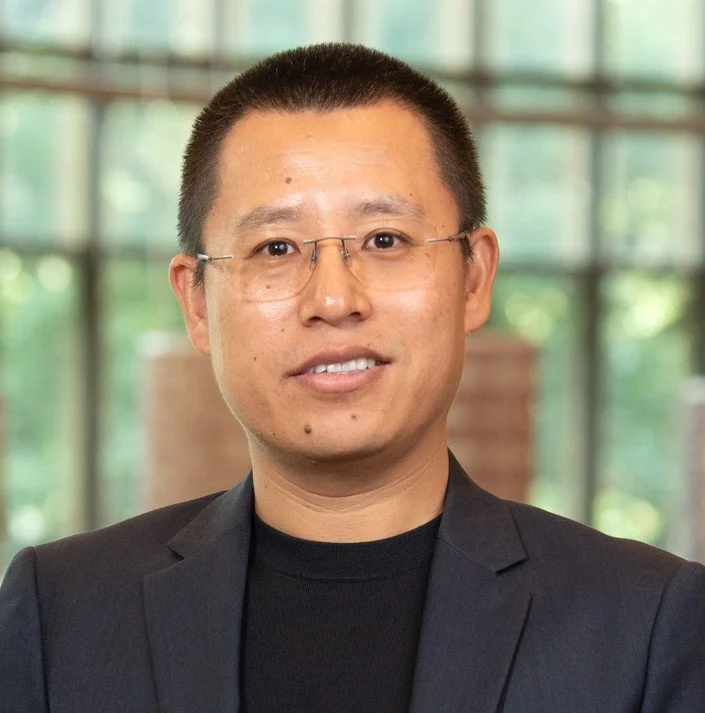
Shuhua Sun is an Associate Professor of Management and the Callais Professor of Entrepreneurship at Tulane University’s Freeman School of Business, where he also serves as Director of the Goldring Institute for International Business. Dr. Sun’s research examines how individuals and teams navigate social and technological environments to achieve career, creative, and performance goals. His work has been published in leading academic journals, including Organization Science, Journal of Applied Psychology, Organizational Behavior and Human Decision Processes, Personnel Psychology, and Journal of Business Venturing, and has been featured in college textbooks. His recent research focuses on people-centered strategies for deploying and implementing AI in the workplace. Professor Sun has extensive international teaching experience at the undergraduate, graduate, and doctoral levels. At Tulane, he teaches courses in Organizational Behavior and Managing People in Organizations. Prior to joining Tulane, he taught courses such as Advanced Quantitative Research Methods in Business, Business Innovation and Sustainable Development, and Organizational Learning and Development at Maastricht University’s School of Business and Economics in the Netherlands, as well as Management & Organization and Managing Change at the National University of Singapore Business School.
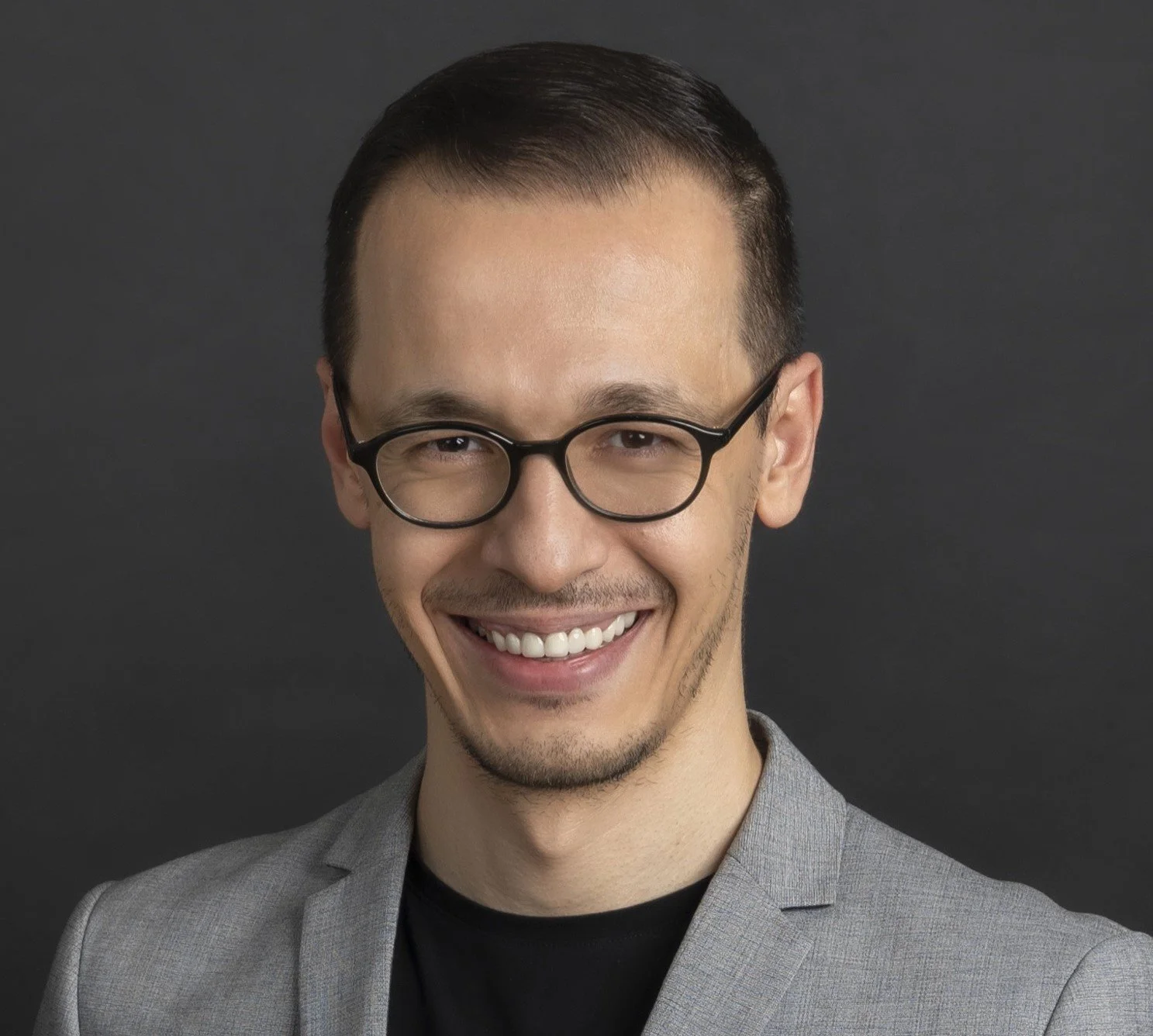
Ertugrul Uysal is a postdoctoral researcher at the Chair of Technology Marketing at ETH Zürich. He has a PhD in Management from the University of Neuchâtel in Switzerland, with a background in Cognitive Science. His research focuses on how we interact with and relate to digital technologies (GenAI, social media, virtual reality, voice technologies). He often thinks about how we can achieve a sustainable digital future. More recently, he is interested in the intersection of AI and empathy, working on GenAI-powered voice technologies with emotion recognition capabilities at the AI Empathy Research Initiative.
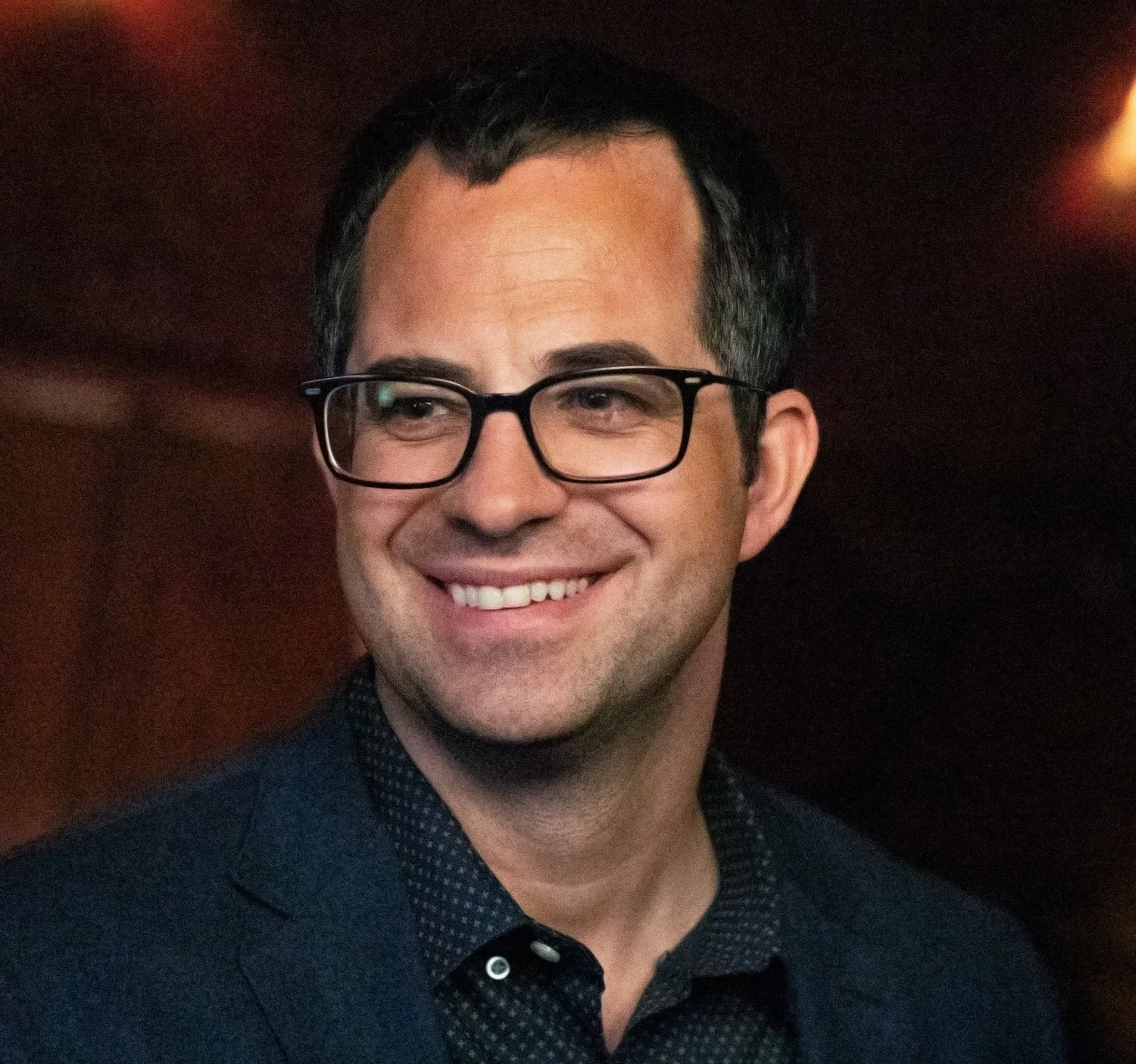
Jay Van Bavel is a Professor of Psychology & Neural Science at New York University, an affiliate at the Stern School of Business in Management and Organizations, Professor at the Norwegian School of Economics, and Director of the Center for Conflict & Cooperation. He is also co-author of The Power of Us: Harnessing Our Shared Identities to Improve Performance, Increase Cooperation, and Promote Social Harmony (winner of the 2022 APA William James Book Award). Jay completed his PhD at the University of Toronto and a Postdoctoral Fellowship at The Ohio State University. From neurons to social networks, Jay’s research examines how collective concerns—group identities, moral values, and political beliefs—shape the mind, brain, and behavior. His work addresses issues of group identity, social motivation, intergroup conflict & polarization, cooperation, beliefs & misinformation, moral judgment & decision-making, social media, and public health. He studies these issues using a combination of experimental social psychology, behavioral economics, cross-cultural samples, cognitive neuroscience methods, and computational social science. Jay has published over 150 academic papers (including in Science, Nature, PNAS) and he is a Clarivate highly cited researcher (in the top 1% of researchers worldwide). He has written about his research for The New York Times, BBC, The Atlantic, Scientific American, The Wall Street Journal, Guardian, LA Times, TIME, and The Washington Post, wrote a mentoring column for Science Magazine, and he writes one of the most popular social psychology newsletters on Substack called The Power of Us. Jay’s work has been cited in the US Supreme Court and Senate, he has created TEDx and TED-Ed videos, and he has consulted with the White House, United Nations, European Union, and World Health Organization.



